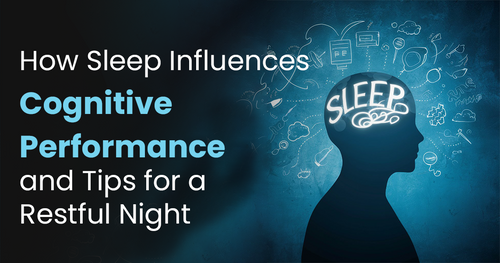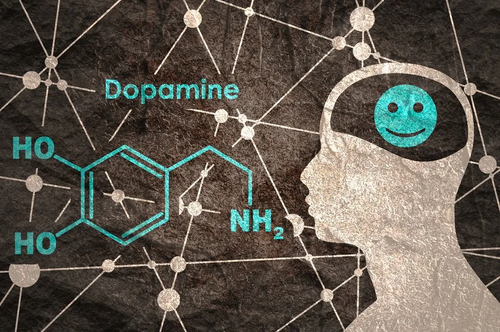When it comes to learning, we often focus on techniques like active recall, spaced repetition, or note-taking methods. However, another crucial aspect that greatly influences our learning abilities is our brain's chemical balance, particularly serotonin levels. Serotonin, a neurotransmitter often dubbed the "feel-good" hormone, plays a vital role in mood regulation, sleep, and even cognitive functions like memory and learning. Here are some practical tips for boosting serotonin levels and enhancing your learning experience.
1. Incorporate a Healthy Diet
Your diet has a direct impact on serotonin production. Foods rich in tryptophan, an amino acid that is a precursor to serotonin, are essential for maintaining balanced serotonin levels. Some tryptophan-rich foods include turkey, chicken, eggs, dairy products, nuts, seeds, tofu, and soy products. Complex carbohydrates like whole grains also play a role in increasing the availability of tryptophan in the brain. Consuming a diet rich in fruits, vegetables, lean proteins, and whole grains can help create the right conditions for optimal serotonin production.
2. Regular Physical Exercise
Exercise is a well-known mood booster, primarily because it enhances the release of serotonin, dopamine, and other neurotransmitters. Engaging in regular physical activity, such as jogging, cycling, swimming, or even walking, can significantly boost serotonin levels. Aerobic exercises are particularly effective for this. Physical activity not only improves serotonin production but also enhances brain function by increasing blood flow and oxygen to the brain. This improves concentration, memory retention, and overall cognitive ability, making learning more effective and enjoyable.
3. Get Adequate Sunlight Exposure
Exposure to natural sunlight is one of the simplest ways to boost serotonin levels. Sunlight triggers the release of serotonin in the brain, which helps improve mood and focus. Aim for at least 10-30 minutes of sun exposure several times a week. Morning sunlight is especially beneficial as it helps regulate your circadian rhythm, improving your sleep cycle. Better sleep, in turn, is directly linked to improved learning, memory consolidation, and cognitive function.
4. Practice Mindfulness and Meditation
Mindfulness practices, including meditation, deep breathing exercises, and yoga, have been shown to increase serotonin levels and promote overall well-being. These practices help reduce stress and anxiety, which can otherwise deplete serotonin levels. Meditation, in particular, has been linked to the release of serotonin, helping to create a calm and focused mind, conducive to learning. A few minutes of mindfulness meditation each day can lead to significant improvements in mood, concentration, and cognitive performance.
5. Prioritize Quality Sleep
Sleep is a critical component of serotonin production and cognitive function. The brain converts serotonin into melatonin, the hormone that regulates sleep-wake cycles. A lack of quality sleep can lead to reduced serotonin levels, impairing learning and memory. To improve sleep quality, establish a consistent sleep schedule, create a relaxing bedtime routine, and avoid stimulants like caffeine before bed. Good sleep hygiene will help keep serotonin levels balanced and optimize brain function for better learning outcomes.
6. Stay Connected and Build Positive Relationships
Social connections and positive relationships play a significant role in serotonin production. Engaging in meaningful conversations, spending time with loved ones, and building a strong support network can naturally increase serotonin levels. Social activities stimulate the brain to release neurotransmitters that enhance mood and cognitive function, making it easier to learn and retain new information.
7. Use Supplements Wisely
While natural methods are the best way to boost serotonin, some people may benefit from supplements such as 5-HTP, St. John’s Wort, or Vitamin B6 and B12. However, it is essential to consult a healthcare professional before taking any supplements, especially if you are on medication or have existing health conditions. Supplements should be considered as a complement to, not a replacement for, a healthy lifestyle.
8. Engage in Learning Activities You Enjoy
Engaging in learning activities that you find enjoyable can also help boost serotonin levels. When you learn something new and find it rewarding, your brain releases serotonin, reinforcing the behavior. Choose subjects or activities that genuinely interest you, and use varied learning methods to keep the process engaging. A positive emotional state enhances memory formation and retention, making learning more effective.
Conclusion
Boosting serotonin levels is not just about feeling good; it’s also about creating the optimal mental state for learning and cognitive development. By incorporating healthy habits like proper diet, regular exercise, sunlight exposure, mindfulness, quality sleep, and positive social interactions, you can enhance both your serotonin levels and your learning experience. A balanced mind is a more focused, creative, and effective learner. So, take care of your brain chemistry, and watch your learning potential soar!

































